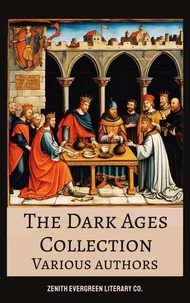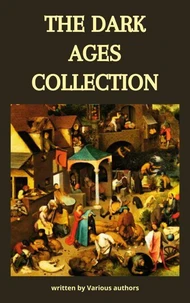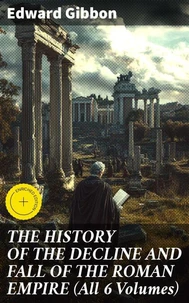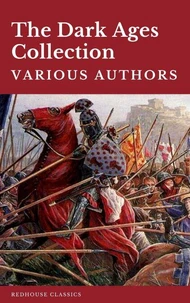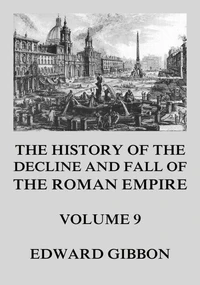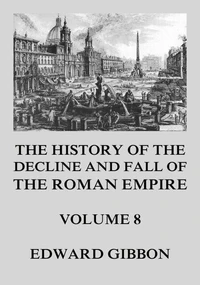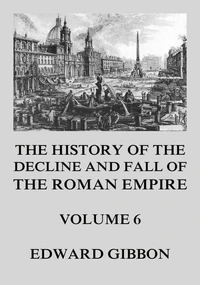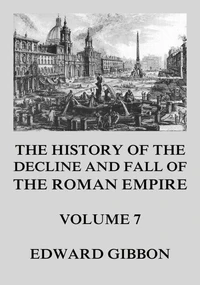The Collected Works
Par :Formats :
Disponible dans votre compte client Decitre ou Furet du Nord dès validation de votre commande. Le format ePub est :
- Compatible avec une lecture sur My Vivlio (smartphone, tablette, ordinateur)
- Compatible avec une lecture sur liseuses Vivlio
- Pour les liseuses autres que Vivlio, vous devez utiliser le logiciel Adobe Digital Edition. Non compatible avec la lecture sur les liseuses Kindle, Remarkable et Sony
 , qui est-ce ?
, qui est-ce ?Notre partenaire de plateforme de lecture numérique où vous retrouverez l'ensemble de vos ebooks gratuitement
Pour en savoir plus sur nos ebooks, consultez notre aide en ligne ici
- Nombre de pages1250
- FormatePub
- ISBN859-65--4740028-8
- EAN8596547400288
- Date de parution13/11/2022
- Protection num.Digital Watermarking
- Taille5 Mo
- Infos supplémentairesepub
- ÉditeurDIGICAT
Résumé
Edward Gibbon's "The Collected Works" is an extensive compilation that encapsulates the prolific contributions of this 18th-century historian, most notably known for his magnum opus, "The History of the Decline and Fall of the Roman Empire." The literary style is marked by its eloquence, rhetorical flair, and critical analysis, employing a blend of narrative history and philosophical discourse. Gibbon deftly navigates the complexities of his subjects, illuminating the sociopolitical factors contributing to the fall of empires, while engaging with Enlightenment themes of reason and progress, thus situating his works within the broader context of intellectual thought of the period.
Gibbon, born in 1737, was profoundly influenced by the European Enlightenment and his own travels through historical sites. His experiences and education fostered a deep fascination with classical antiquity, prompting his commitment to thorough research and a critical approach to historical narrative. His work reflects both his admiration for and skepticism of historical continuity, especially regarding the interplay between religion and governance-a perspective shaped by his own context of 18th-century Europe.
For scholars, students, and history enthusiasts alike, "The Collected Works" serves not only as a comprehensive gateway into Gibbon's significant contributions but also as a foundation for comprehending the complexities of history itself. This anthology invites readers to ponder the lessons of the past, making it an indispensable addition to any literary or historical collection.
Gibbon, born in 1737, was profoundly influenced by the European Enlightenment and his own travels through historical sites. His experiences and education fostered a deep fascination with classical antiquity, prompting his commitment to thorough research and a critical approach to historical narrative. His work reflects both his admiration for and skepticism of historical continuity, especially regarding the interplay between religion and governance-a perspective shaped by his own context of 18th-century Europe.
For scholars, students, and history enthusiasts alike, "The Collected Works" serves not only as a comprehensive gateway into Gibbon's significant contributions but also as a foundation for comprehending the complexities of history itself. This anthology invites readers to ponder the lessons of the past, making it an indispensable addition to any literary or historical collection.
Edward Gibbon's "The Collected Works" is an extensive compilation that encapsulates the prolific contributions of this 18th-century historian, most notably known for his magnum opus, "The History of the Decline and Fall of the Roman Empire." The literary style is marked by its eloquence, rhetorical flair, and critical analysis, employing a blend of narrative history and philosophical discourse. Gibbon deftly navigates the complexities of his subjects, illuminating the sociopolitical factors contributing to the fall of empires, while engaging with Enlightenment themes of reason and progress, thus situating his works within the broader context of intellectual thought of the period.
Gibbon, born in 1737, was profoundly influenced by the European Enlightenment and his own travels through historical sites. His experiences and education fostered a deep fascination with classical antiquity, prompting his commitment to thorough research and a critical approach to historical narrative. His work reflects both his admiration for and skepticism of historical continuity, especially regarding the interplay between religion and governance-a perspective shaped by his own context of 18th-century Europe.
For scholars, students, and history enthusiasts alike, "The Collected Works" serves not only as a comprehensive gateway into Gibbon's significant contributions but also as a foundation for comprehending the complexities of history itself. This anthology invites readers to ponder the lessons of the past, making it an indispensable addition to any literary or historical collection.
Gibbon, born in 1737, was profoundly influenced by the European Enlightenment and his own travels through historical sites. His experiences and education fostered a deep fascination with classical antiquity, prompting his commitment to thorough research and a critical approach to historical narrative. His work reflects both his admiration for and skepticism of historical continuity, especially regarding the interplay between religion and governance-a perspective shaped by his own context of 18th-century Europe.
For scholars, students, and history enthusiasts alike, "The Collected Works" serves not only as a comprehensive gateway into Gibbon's significant contributions but also as a foundation for comprehending the complexities of history itself. This anthology invites readers to ponder the lessons of the past, making it an indispensable addition to any literary or historical collection.



